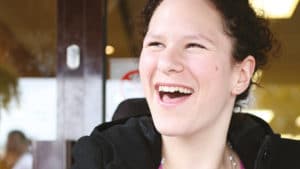
Although it’s natural for you to want to support a loved one yourself, as the years go by, the lifelong commitment can start to become a concern, especially when it comes to the impact on your own health and wellbeing.
Let’s take a look at how some extra support at home can help and the options available for enabling your son or daughter to live a full and independent life.
A caregiver from childhood through to adulthood
If you’ve cared for a loved one for many years, as time goes by, their support needs may increase or new challenges may arise. Add in managing other family responsibilities and work commitments, and it can suddenly become very apparent that extra help is needed.
Some families may first consider using a private carer for a temporary period, if they need a break or have fallen ill themselves. Called respite care, this temporary support can be a good way of sampling the services available and whether they would suit your family.

Support for progressive conditions
Conditions such as multiple sclerosis, spinal muscular atrophy and muscular dystrophy are progressive, which means that it’s important to have a clear plan for how to manage care needs into the future. For instance, you may need to research mobility aids or speech aids, modifications may need to be made around the home, or you might be thinking about moving your loved one closer to the family home in order to reduce the time it takes for you to get to them.
For younger adults with progressive conditions and complex needs such as these, it’s vital that they are still able to keep an active social life. Not only are our personal assistants trained to manage stomas, catheters, and peg-feeding tubes or tracheostomies, they will also get to know your loved one on an individual basis, getting to know their hobbies and interests and enabling them to maintain these in any way they can.
In short, they’ll be more than just a carer – they’ll also become a friend.
It is often thought that residential care is the only option for someone with more complex healthcare needs, and the prospect of moving away from the family can be a daunting and disrupting prospect. With an assistant on hand to help at all times – someone who has similar interests and outlook – a younger adult can retain the independence they may feel they have otherwise lost through our adult care services.
Support after a brain or spinal injury
Brain or spinal injuries are life-changing for many different reasons and the demands they can bring can be incredibly difficult to cope with for a younger adult who may well have been previously highly independent.
Rather than completely taking over, our personal assistants put the focus on encouraging and assisting when and where it’s needed, allowing your loved one to direct them as they see fit.
Our home care support can even be offered in an emergency situation. For example, if you are the main caregiver and need urgent cover because of a family illness or crisis, we’ll create a unique package of care so your relative has the support they need.
To learn more about our support and to arrange a free home care assessment, please get in touch with our team on 0808 274 7734.
